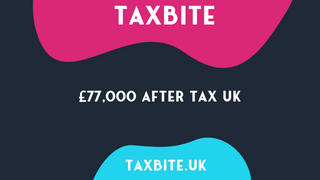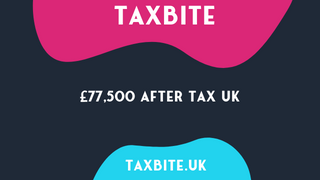Your gross income is the total amount of money you earn before any deductions are made, such as taxes or retirement contributions. It’s important to understand the breakdown of your earnings, including all sources of income such as wages, salaries, tips, and commissions. Knowing this information will help you better plan for your financial future and ensure you are receiving the correct amount of pay.
In this section, we’ll explore the different components that make up your gross income and how they affect your take-home pay. Additionally, we’ll take a closer look at what your estimated gross income for the upcoming tax year could be, as understanding this number is key to effective financial planning. Let’s dive in and demystify the world of gross income!
Comprehending gross income components is crucial for managing finances. Gross income is all earnings prior to any deductions, such as taxes and social security contributions. It consists of taxable and non-taxable sources.
For the 2022-2023 tax year, taxable components of gross income include wages/salary, tips and commissions, rental income (if applicable), profits from self-employment or businesses, and pension payments (excluding state pensions). Non-taxable sources of income are benefits provided by employers, such as a company car or medical insurance.
To grasp the categorization of gross income into taxable and non-taxable components, see the table below:
| Gross Income Components | Taxable/Non-Taxable |
|---|---|
| Salary/Wages | Taxable |
| Tips & Commissions | Taxable |
| Rental Income | Taxable |
| Self-Employment Profits | Taxable |
| Pension Payments | Taxable (except state pensions) |
| Employer Benefits | Non-Taxable |
Knowing these distinctions is necessary to accurately compute net salary.
Moreover, there could be other miscellaneous expenses that could be deducted from the gross salary like employee contributions to retirement plans like 401(k)s. This will impact the amount of taxable income left over for further calculations.
Gross Income for the Tax Year 2022-2023 refers to the total income earned by an individual before any deductions or taxes are made. It covers salaries, wages, bonuses, tips, pensions, interest on savings accounts, and investments.
Creating a table can help understand the components contributing to Gross Income. This includes:
| Components |
|---|
| Salaries |
| Wages |
| Bonuses |
| Deductions like employee pension contributions and student loan repayments |
It’s worth noting that some components of Gross Income might not be taxable under certain conditions. For example, certain types of pensions may be tax-free if they meet HM Revenue & Customs (HMRC) criteria. Conversely, non-monetary benefits like company cars may be subject to taxation.
A pro tip for dealing with Gross Income is to be aware of when allowances change and exceptions occur. This enables financial planning that aligns with governmental laws and taxation policy changes.
Calculating income tax and national insurance contributions can be a complex process. In this section, we will provide guidance on the essential components of income tax and national insurance. This will include:
By following our guidance, you can ensure that you’re accurately calculating your take-home pay. So, let’s explore the world of income tax and national insurance together.
Taxable income is the part of your earnings on which you pay taxes. It includes wages, salaries, tips, bonuses and other forms of compensation. It’s important to understand taxable income and allowances to work out how much of your income will be taxed.
Knowing the different types of allowances and their maximum amounts is key when managing taxable income and calculating taxes. A table showing these allowances, such as personal, married person’s, blind person’s, property, trading, and other reliefs, can make things easier. These allowances can lower your taxable income due to your particular circumstances.
HMRC offers a standard personal allowance, plus extra tax relief options for expenses incurred while earning. For instance, if you work from home or need to move for work and your employer doesn’t cover the costs, you may be able to claim or deduct certain taxes.
Therefore, don’t worry about going up a tax bracket. Focus on understanding taxable income and allowances to make sure you’re paying the right amount, and avoiding fees or penalties.
In the UK, the tax system uses tax brackets and rates for determining how much income tax an individual pays. This depends on their taxable income – which includes their gross income after tax deductions.
The table shows four income brackets. The first applies to those with a taxable income of up to £12,570, with no income tax payable. The remaining three brackets have different rates, beginning with 20% for incomes between £12,571 and £50,270. The highest rate is 45%, for those earning above £150,000 per year.
This applies only to earned taxable income, not to other sources, such as rent or stock dividends. Knowing these brackets and rates can help individuals calculate their income tax. This can help with money management.
A good way to understand this is to use an online tax calculator. This puts in earnings and expenses, to give an idea of the take-home pay. This can support good financial planning.
Individuals aged 16 to State Pension age working in the UK must pay National Insurance Contributions. These are based on gross earnings, with different %s depending on income and employment status (employed or self-employed).
The contributions provide support in times of need, such as retirement or long-term illness. Exemptions and allowances can reduce the liability.
National Insurance is important. It helps people qualify for state benefits and funds public services. Understanding how it works is essential for financial management.
When it comes to maximizing your income, it is crucial to understand your take-home pay after tax. In this section, we will delve into what you can expect to earn with our informative subsections on monthly and yearly net salary. We will also examine how bonuses and salary increases can affect your earnings, enabling you to make informed decisions about your finances. Based on current market trends and figures, you can be one step closer to earning the desired £73,000 after tax in 2023.
Net salary is what you actually take home each month or year. So, understanding it is crucial. A table with monthly and yearly figures for net salary, based on taxable incomes, can give us an idea of what to expect. But, individual circumstances will vary. Bonuses, pay rises, housing expenses and everyday bills all need to be taken into account. Be vigilant with finances and always remember the tax man when thinking about net salary.
Bonuses and salary increases can have a big impact on your take-home pay after tax. It’s important to be aware of the effects they can have.
First, they will raise your taxable income. This could push you into a higher tax bracket and mean more income tax. Your National Insurance contributions could go up too.
It’s essential to understand the tax implications of any bonuses or salary increases. Performance-related bonuses are taxed differently from standard wages.
So, calculate how much you’ll have left after tax for each bonus or raise. This will help you make responsible decisions with your additional earnings.
Knowledge is key when it comes to money matters. Someone I know had a big salary increase, but didn’t consider the tax implications! As a result, their take-home pay was far less than expected. Don’t forget about financial considerations when deciding on your income.
Looking to calculate your take-home pay after taxes? Look no further than online tax calculators. These tools use accurate algorithms to estimate your earnings based on factors such as your salary, pension contributions, and tax code. In this section, we will explore two of the most reputable tax calculators: the Reed.co.uk Tax Calculator and the Income-Tax.co.uk After Tax Calculator. These calculators are perfect for anyone hoping to plan their finances with precision.
Want a precise overview of the relevant fields for the Reed.co.uk Tax Calculator? You’ve come to the right spot! This tool provides all the info needed for calculating Income Tax and National Insurance Contributions. Check out the table below:
| Field | Description |
|---|---|
| Gross Salary | Total earnings before deductions or taxes |
| Tax Code | Unique combination of letters and numbers that determines tax amount |
| Pension Contribution | Percentage of gross salary towards a pension scheme |
| Bonus Amount | Additional earnings on top of gross salary |
Fill in the calculator’s required info to quickly find out your Income Tax and National Insurance Contributions based on 2022-2023 rates. Plus, this calculator takes into account bonuses and salary increases.
The Reed.co.uk Tax Calculator even shows take-home pay after tax. That way, you can manage personal budgets more easily. After-tax salary calculators show monthly or yearly net salaries after deductions, so you can take home a comfortable amount.
For a fast take-home pay calculation, use the Income-Tax.co.uk After Tax Calculator. Do it now and make informed financial decisions with the Reed.co.uk Tax Calculator!
The Income-Tax.co.uk After Tax Calculator is here! It’s user-friendly and offers accurate calculations. It takes into account up-to-date tax rates and brackets. Plus, it takes into account any additional bonuses or salary increases you’ve received during the tax year. What’s really special about this calculator is its easy-to-use interface. It simplifies the process of calculating take-home pay without needing lots of financial data. So, you can get precise results without feeling overwhelmed. Visit income-tax.co.uk to access the valuable after-tax calculator!
Managing finances with post-tax salary is key for a steady financial future. If you aim to earn £73,000 after-tax in 2023, you must take into account changing tax rates and inflation. Calculations show that to make £73,000 after-tax in 2023 with an annual inflation rate of 2.5%, you need to target a pre-tax income of £103,000.
To reach this pre-tax pay, you may need to adjust your current financial plan, such as investments and savings. By being aware of your tax obligations and planning smartly, you can hit your financial goals without lowering your lifestyle.
You should also factor in the influence of pension contributions and tax credits on your post-tax income. Maximizing tax reliefs on pension contributions can help you increase your income tax efficiently, so that you can reach your desired post-tax income.
If you’d like a tailored financial plan that considers your own goals and personal circumstances, consulting a financial planner is a great idea. With careful planning and attention to detail, managing your finances with post-tax salary can lead to a solid financial future.
Based on current tax rates, you will be taxed £22,362 on a salary of £73,000 in the UK.
If you earn £73,000 per year in the UK, your net pay will be £50,638 per year or £4,220 per month, after tax deductions.
The marginal tax rate is the rate at which any additional income will be taxed. For example, if you get a £100 increase in salary, your net pay will only increase by £56.75. Any additional income will be taxed at the marginal tax rate, which is 43.3% for a salary of £73,000 in the UK.
Deductions such as pension and childcare vouchers will lower your taxable income, which results in a lower tax amount and a higher net income. However, the specific impact will depend on your individual circumstances and tax brackets.
Gross income is the total amount of income earned before any deductions are made, while net income is the amount of income left over after all deductions such as taxes, pension, and other contributions have been taken out.
Using various tax calculators, you can calculate your take-home pay on a yearly income of £73,000 in the UK. Some factors that affect your net income include tax rate, marginal tax rate, deductions, and contributions such as pension and childcare vouchers.
Here’s a list of similar salaries:



















